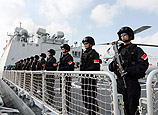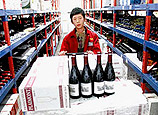
Historians believe the widespread support the CPC once had from farmers was one of the magic codes that made it China's ruling party after it confiscated land from landlords and allocated them to peasants for free in the revolution era.
China's late leader Mao Zedong attributed the CPC's course to national power to a strategy of "using the rural areas to encircle the cities".
The reform and opening up that catapulted China into its current position of the world's second-largest economy also originated from Xiaogang village in east China's Anhui Province, where farmers secretly contracted farmland from the collective in 1978 when most villages in the country were still struggling to make their ends meet in collective farms.
The practice at Xiaogang village was later applied to the rest of the countryside, as rural collectives distributed land-use rights to households through contracts of 30-year "household management".
Under the existing rules, the state can nationalize the collective-owned land over reasons like "public interests" and transfer farmland for industrial and construction use.
To build more homes for migrant workers flocking to cities and towns amid the country's rapid urbanization, local governments grabbed a number of land from farmers over the years, then sold them to industrial and housing developers, but compensated very little to rural residents.
Moreover, farmers are deprived of any gains in the land value after their farmland is expropriated, thus fueling increasing discontent and complaints from farmers, including those living at Wukan village in the city of Shanwei of south China's Guangdong Province.


















 First alpine rail gets midnight maintenance
First alpine rail gets midnight maintenance


![]()
